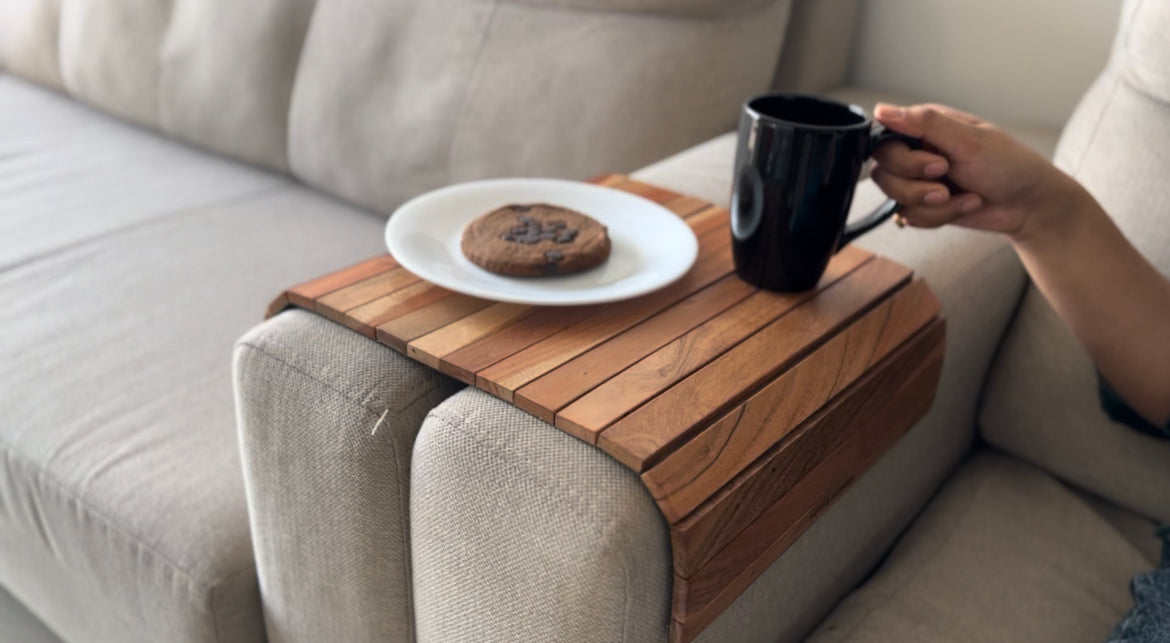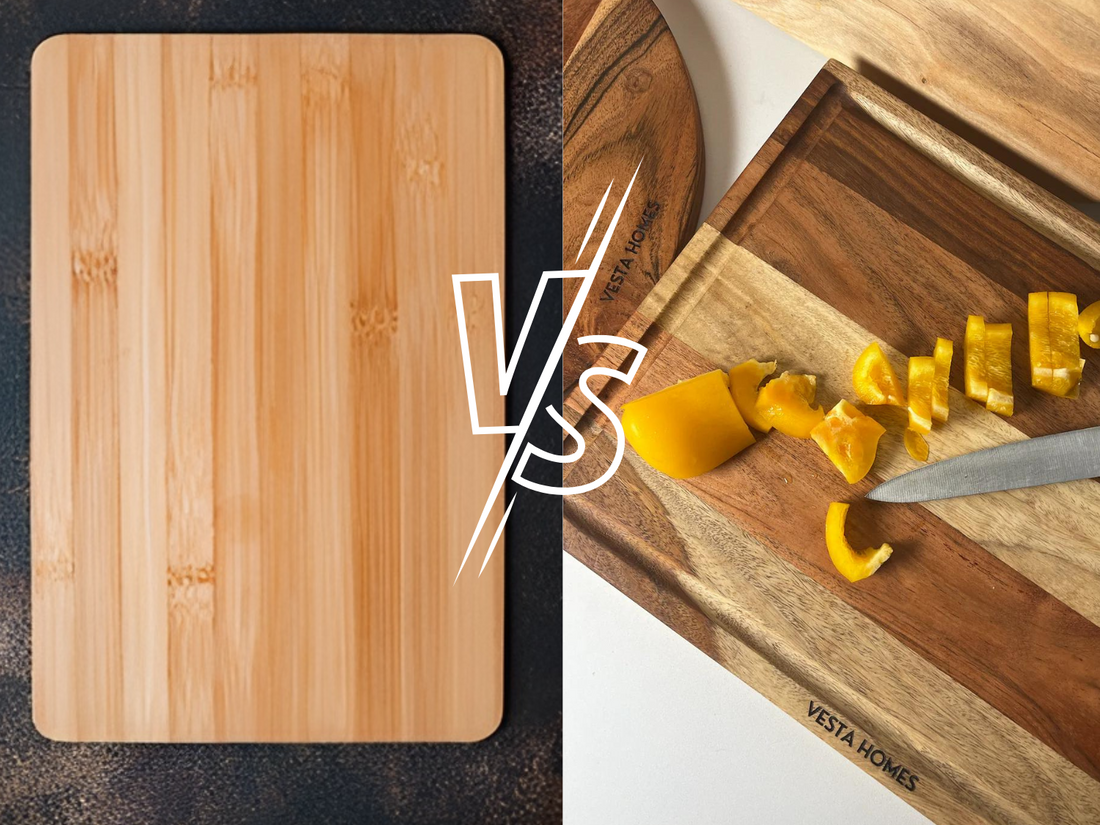When it comes to choosing a reliable and durable cutting board for your kitchen, you may have come across the popular trend of using bamboo chopping boards. While bamboo cutting boards are often marketed as a more sustainable and eco-friendly option, they are not necessarily better than hardwood cutting boards. In fact, hardwood cutting boards offer several advantages over bamboo cutting boards in terms of durability, hygiene, and performance. In this blog post, we will debunk the myth that bamboo cutting boards are superior to hardwood chopping boards
-
Durability and Longevity: Hardwood cutting boards, such as those made from maple, acacia, or sheesham wood, are known for their exceptional durability and longevity. They are resistant to knife marks, scratches, and warping, making them ideal for heavy-duty cutting tasks in the kitchen. On the other hand, bamboo chopping boards are relatively softer and prone to knife marks and damage, which can harbor bacteria and compromise their integrity over time. Hardwood cutting boards are built to last, making them a wise long-term investment for your kitchen.
-
Hygiene and Food Safety: Another important factor to consider in a cutting board is its hygiene and food safety properties. Hardwood cutting boards have a tight and dense grain structure that makes them less porous compared to bamboo cutting boards. This means that hardwood cutting boards are less likely to absorb moisture, odors, and food particles, reducing the risk of bacterial growth and cross-contamination. Bamboo cutting boards, on the other hand, can have larger pores that can trap food particles and harbor bacteria, even with regular cleaning. Hardwood cutting boards offer superior hygiene and food safety, ensuring that your food preparation surface is clean and safe for culinary activities.
-
Performance and Maintenance: Hardwood cutting boards also offer better performance and require less maintenance compared to bamboo cutting boards. Hardwood cutting boards are more resistant to knife marks and stains, and they do not require frequent oiling or conditioning like bamboo cutting boards. Bamboo cutting boards, on the other hand, need regular oiling to maintain their integrity and prevent drying and cracking. Hardwood cutting boards offer a hassle-free and low-maintenance option for your kitchen, saving you time and effort in the long run.
-
Eco-Friendliness: While bamboo cutting boards are often promoted as a more sustainable option, it's important to note that not all bamboo is harvested sustainably. Bamboo is often grown using intensive farming practices and chemicals, and the manufacturing process for bamboo cutting boards involves gluing together multiple layers of bamboo strips with adhesives, which may contain formaldehyde or other harmful chemicals. In contrast, hardwood cutting boards are made from natural and renewable hardwoods that are often harvested sustainably, ensuring a more eco-friendly choice for your kitchen.
In conclusion, while bamboo cutting boards may seem appealing due to their eco-friendly image, they are not necessarily superior to hardwood cutting boards in terms of durability, hygiene, performance, and maintenance. Hardwood cutting boards offer a more durable, hygienic, and low-maintenance option for your kitchen, making them a better choice for culinary enthusiasts who value quality and longevity. By choosing a high-quality hardwood cutting board, you can ensure a reliable and long-lasting food preparation surface in your kitchen. Don't be swayed by the bamboo trend, and make an informed decision for your cutting board needs.

